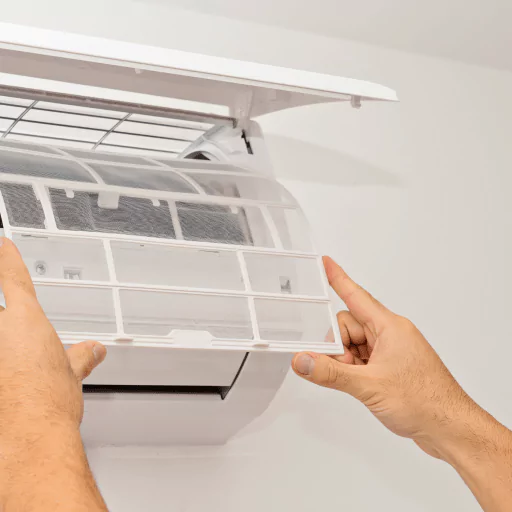
Keeping your air conditioning system in top shape is especially important in Florida’s warm and humid climate. One of the simplest yet most vital tasks for maintaining your AC is regularly changing the filters. This small but powerful action can significantly improve the efficiency, performance, and lifespan of your HVAC system. Yet, it’s a task that many homeowners often overlook.
Why Regular Filter Changes Matter
- Improved Air Quality: One of the main jobs of your AC filter is to trap dust, pollen, pet dander, and other airborne particles that flow through your system. Over time, these particles can build up and clog the filter, making it less effective. When a filter becomes too clogged, contaminants can circulate back into your home, diminishing the air quality. For anyone dealing with allergies or respiratory issues, this can make a big difference. By simply changing the filter regularly, you help maintain cleaner indoor air, which leads to a healthier living environment for you and your family.
- Boosted Energy Efficiency: When your filter is dirty, your AC system has to work much harder to circulate air through your home. This increased effort causes your unit to use more energy, driving up your utility bills. A clogged filter puts unnecessary stress on the system, leading to higher energy consumption. In contrast, clean filters allow air to move more freely, making your AC system run more efficiently. This means not only lower electricity bills but also a reduced environmental impact.
- Extending Your System’s Lifespan: Another significant benefit of regularly changing your AC filter is that it helps protect the system itself. When dirt and debris are allowed to accumulate inside the HVAC system, they can lead to premature wear and tear on key components. This can cause parts to break down sooner, leading to expensive repairs—or worse, the need to replace the system altogether. Clean filters help reduce this internal buildup, prolonging the life of your AC unit and saving you from costly repairs in the long run.
- Consistent Cooling Performance: Proper airflow is crucial to keeping your home at a comfortable temperature, especially during the hottest months of the year. A clogged filter restricts airflow, which means your AC unit will struggle to maintain the desired temperature. This results in uneven cooling, making some rooms feel warmer than others. By keeping your filters clean and changing them regularly, you ensure that your AC system can provide consistent and effective cooling for your entire home.
How Often Should You Change Your AC Filter?
The frequency with which you should change your AC filter depends on several factors, including the type of filter, the presence of pets, and the overall air quality in your area. In general, it’s a good idea to check your filter at least once a month. Even if it doesn’t look dirty, replacing it every three months is a solid rule of thumb. However, if you have pets or live in a region with a lot of dust, pollen, or other allergens, more frequent filter changes may be necessary.
Higher-end filters may last longer, but they can still become clogged faster in certain conditions. Keeping an eye on your filter ensures you’ll catch any buildup before it affects your system’s performance.
Conclusion
Changing your AC filters regularly is one of the easiest yet most effective ways to maintain your HVAC system. It improves air quality, boosts energy efficiency, extends the life of your unit, and ensures consistent cooling. By making this simple task a regular part of your home maintenance routine, you’ll enjoy cleaner air, lower energy bills, and a more reliable air conditioning system. Don’t underestimate the importance of keeping your filters clean—this small step can make a big difference in your home’s comfort and your system’s longevity.